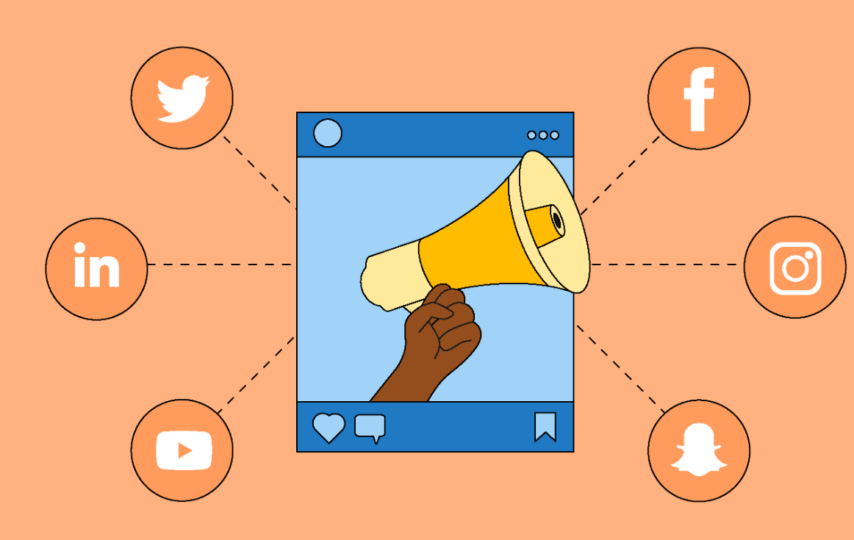In an era where online buzz became a reference point for market trends, influencer marketing has arisen as a key method for brands that want to be connected into the crowd of their target consumers. Through the utilization of the influencing effect of social media stars, commercial can create attractive topic for the people and persuade them to be faithful and highly involved with the brand. The difference-maker for influencer marketing campaigns is not only the size or popularity as influencer pers se, so much as the psychological laws that relate to human behavior and decision-making. comprehending such emotional triggers becomes the utmost crucial part to be understood thereby influencing marketers to efficiently apply influencer marketing in meeting their objectives.
Trust and Credibility
The influencers are typically great in creating their following by means of ongoing and genuine interactions with their followers. They do this by sharing their stories and impressions, which feel close to the audience’s hearts. An influencer’s perceived authenticity thus builds the basis of trust and credibility, and so his/her recommendations become more powerful than the usual ads. Social proof, the psychological factor, gets involved as well here. Individuals become more likely to follow beliefs or mimic the behavior of those people whom they trust and admire.
The Halo Effect
Halo effect is a cognitive bias, where our minds are persuaded by the fact that we have already perceived one positive feature (attractive/successful for example) that actually may influence other qualities of that person. Influencers, especially, those from beauty, fitness and lifestyle niche can witness this kind of a fandom.
Relatability and Social Identity Theory
Social identity theory is all about collective identity through being part of social groups. When followers are able to relate to a particular influencer, they show an inclination towards the influencer’s ideas. Thus, the products recommended by this influencer will most likely be trusted. These products in turn, symbolize the personalities of people who buy them and their group affiliations.
The Principle of Scarcity
The principle of scarcity is a very strong motivation in the world of consumer behavior. It is probably the one and only factor that affects consumers directly. Most of them prefer to frequently use this method through making ads about a limited offer, offering the chance to try something they created with another influencer which is limited-time or announcing a flash sale. Applying this method will leave the users with a desire for making a fast move so as to prevent them from the chance to be missed.
Reciprocity
The norm-of-reciprocity stipulates that when a person receives a favor from another, in most cases, he or she feels a certain obligation and beneath this theory, the word of mouth is very effective in encouraging the purchase of the brand that has been reviewed positively. This principle dictates a fact that people feel this obligation, to give back to those who have previously shared with them.
Emotional Connection and Storytelling
The main means of influencer marketing are often straightforward, e.g. influencers narrate real stories that occur with life around a product or brand. This way of narrating brings out the emotional component, which previously made the promotion feel unsettled and unrelated.
How to Leverage the Psychology of Influencer Marketing
Knowledge of the psychologically based nature of influencer marketing is an asset for the brand and marketing managers for them to gain more success through the campaigns. Here are several strategies to leverage these principles:
Choose the Right Influencers
Choose the influencers who are able to establish high connections with your followers. The most important thing here are believability, understanding the consumer and their affinity for your brand rather than their follower count.
Foster Authentic Partnerships
Let the influencers tell their original experiences with your product in their own ways by embedding specially the manner in which they communicate with their followers. Real Appearances are more convincing than readings from an index card.
Leverage Storytelling
Use influencers who can aid in develop content that persuade people to like your product. Tales that are deep down in the heart or that just want to be reminded of personal stories are more compelling.
Utilize Scarcity and Exclusivity
Work with influencers to set up special offers, limited promotions, or a collection for a limited time. This will contribute to creating an urgency and exclusivity.
Encourage Engagement
Get and respond as well as answer questions while taking part of discussions with the influencer’s audience is a great way to reach the audience. This involvement creates a feeling of community and appreciation from the people who will benefit from the provided services.
Measure and Adapt
Use analytics to evaluate campaign effectiveness of your influencer marketing funnels including engagements, conversion rate and ROI. Through these takeaways judge your approach and modify it for successful campaigns in the future.
Influencer marketing effectiveness is based is on its ability to influence consumer’s behavior that is governed by the fundamental psychological principles. Consumer perception of brands widens and strengthens by mastering these principles, which results in more influence, interesting, and successful marketing campaigns. Credibility, likeness, social emotion bond, and principles of the scarcity and reciprocity are cornerstone elements, which impact customer behavior.








